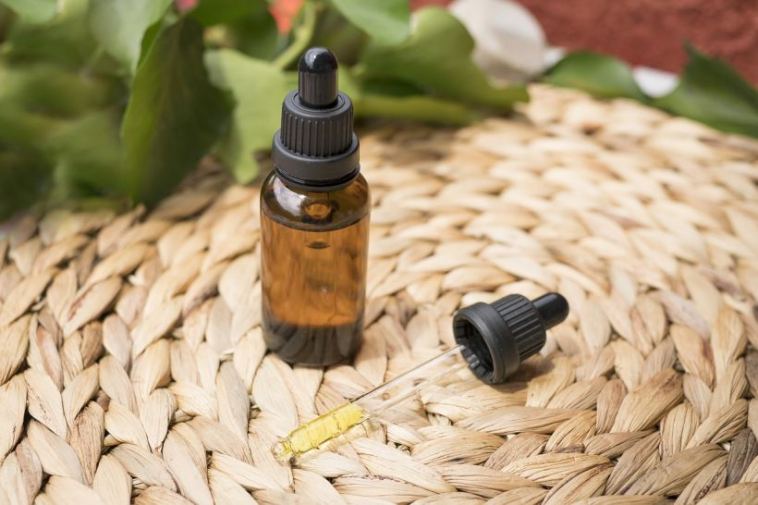- Like
- SHARE
- Digg
- Del
- Tumblr
- VKontakte
- Flattr
- Buffer
- Love This
- Save
- Odnoklassniki
- Meneame
- Blogger
- Amazon
- Yahoo Mail
- Gmail
- AOL
- Newsvine
- HackerNews
- Evernote
- MySpace
- Mail.ru
- Viadeo
- Line
- Comments
- Yummly
- SMS
- Viber
- Telegram
- JOIN
- Skype
- Facebook Messenger
- Kakao
- LiveJournal
- Yammer
- Edgar
- Fintel
- Mix
- Instapaper
- Copy Link
Introduction
Panic attacks refer to sudden, intense, and irrational surges of fear, anxiety, and panic, even without clear triggers or stressors.
Although panic attacks aren’t life-threatening by themselves, they can escalate into full-blown anxiety disorders.
The most common anxiety disorder caused by panic attacks is known as panic disorder (PD). The condition exhibits near-similar symptoms like panic attacks.
According to statistics, panic disorder affects 2.7% of the U.S population, with women considered twice as likely to develop the disorder as men.
Without urgent medical treatment, panic disorder can increase your chances of developing even more severe mental conditions and affect your overall quality of life, which makes it necessary to address panic attacks before the situation escalates into panic disorder.
Causes and Symptoms of Panic Attacks
The causes of panic attacks aren’t fully understood. And although most people often confuse panic attacks with social anxiety disorder, the attacks can occur even when you’re alone.
However, people who are already suffering from other anxiety disorders are at a higher risk of developing panic attacks.
Certain genetically-inherited also play a role in triggering or aggravating panic attacks.
More recently, researchers have been able to tie panic attacks to certain medical conditions, including:
-
- Heart and cardiovascular diseases
- Chronic pain diseases like multiple sclerosis
- Thyroid issues, such as hyperthyroidism
- Irritable bowel syndrome
- Metabolic disorders like diabetes
- Certain tumors that trigger the fight or flight response
- Respiratory disorders like asthma, pneumonia, and chronic obstructive pulmonary disease (COPD)
Lastly, you could experience panic attacks while withdrawing from alcohol, drugs, and certain medications. Some of the common symptoms of panic attacks include:
-
- Difficulty breathing
- Chest pain
- Elevated heart rate
- Uncontrollable sweating
- Uncontrollable shaking
- Temporary detachment from reality, where the victim may think they’re having a heart attack or even dying
While panic attacks can be so distressing, it’s reassuring to note that there are numerous ways to manage the condition. One of the most effective ways to fight panic attacks is by using cannabidiol.
But What Is CBD And Why Does It Combat Panic Attacks?
Cannabidiol (CBD) is one of the 113 chemicals identified in the cannabis plant, which accounts for about 40% of the plant’s extracts.
These chemicals are technically known as phytocannabinoids or simply cannabinoids. CBD is also considered one of the most medically beneficial extracts from the cannabis plant, with an ability to treat and even prevent numerous common ailments.
Although it’s mostly recommended to treat pain and anxiety, there’s a long list of other medical conditions that cannabidiol might help with. Examples include diabetes, cancer, insomnia, Alzheimer’s, epileptic seizures, to mention but a few.
So, how does CBD fight panic attacks? Before you purchase cannabidiol from a trusted supplier like Sunday Scaries CBD, it’s essential to understand how the substance fights panic attacks.
As with other forms of anxiety, cannabidiol can relieve panic attacks by impacting the body’s chemical activity that plays a role in triggering or exacerbating panic attacks.
The human body contains certain hormones associated with happiness and optimism, such as dopamine and serotonin. A deficiency in these hormones has been linked to anxiety and depression.
That explains why medical doctors often recommend selective serotonin reuptake inhibitors (SSRIs) to treat numerous cases of anxiety and depression.
Now, when you consume cannabidiol, the substance affects how your brain signals the presence of serotonin and other ‘feel-good’ chemicals in the body.
In simpler terms, CBD doesn’t trigger the release of happiness hormones, but it gives the body higher access to these hormones. One of the positive benefits of these interactions is a relief from panic attacks and several other mental conditions.
CBD might combat panic attacks by addressing some of the condition’s core triggers and symptoms.
For instance, the substance has antispasmodic properties and might reduce the trembling that occurs during panic attacks. CBD’s analgesic properties are also useful in preventing panic attacks triggered by excruciating pain.
Plus, cannabidiol might relieve some of the common complications of panic attacks, such as insomnia and post-traumatic stress disorder.
What Does Research Say?
There’s no shortage of research pointing to the effectiveness of cannabidiol against panic attacks. For instance, the authors of this 2015 review uncovered that cannabidiol interacts with specific receptors that play a role in regulating fear and anxiety.
Some of those receptors include the cannabinoid type 1 receptor (CB1R) and the serotonin 5-HT1A receptor.
More recently, another study investigating the effectiveness of CBD against panic disorders yielded positive findings. In the study, 397 adults in New Zealand received medical cannabidiol prescriptions to treat various ailments.
After three weeks, all the groups, including the one that received CBD for the treatment of anxiety and depression, reported an overall improvement in their quality of life.
Ultimately, up to 70% of the participants registered their satisfaction with CBD, with a paltry 9.9% reporting side effects like sedation.
Researchers eventually deduced that CBD doesn’t only attenuate panic attack symptoms, but it’s also useful for other anxiety disorders.
Conclusion
CBD can be a potent cure for panic attacks, and there are numerous research studies to back that up. It’s also worth noting that the substance is an all-natural extract and produces relatively mild side effects than conventional anti-anxiety medications. However, new users are advised to begin with low doses to avoid any CBD’s unpleasant side effects.


